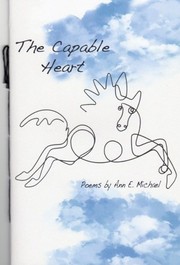 SignalsWorldCat•LibraryThing•Google Books•BookFinder
SignalsWorldCat•LibraryThing•Google Books•BookFinder
I was very lucky that I got to read about three-quarters of this book to Rachel over Skype this afternoon, because the high craftsmanship of these poems really emerges when you read them out loud. Try reading, for example, this passage from “Coastal” about fiddler crabs:
They skitter
sideways, claws raised. The ground is riddledwith burrows, claws extruding. The claw comes out
first—an attitude. Lights come on in the housebehind me. I lift a crab shell, cracked open,
sun-bleached chitin, its ridges crisp and unbroken,dry husk of history, the inside still pearlescent.
My step raises a hundred claws of threat.
And notice how Madden slipped in that phrase “dry husk of history” without making it sound at all sententious? This is a good example of the kind of mischief he’s up to in this book, his first full-length collection but already the work of a mature poet who knows exactly what he’s doing. The book won the South Carolina Poetry Prize, and appropriately so: many of the poems are set in his adopted state of South Carolina, and he tackles issues of race and sexual orientation in the deftest possible manner. “Coastal” appears in the most explicitly political section of the book, and is the second of a pair of poems in the middle of that section that both hearken back to the calmer waters at the beginning of the book, while also suggesting the degree to which political awareness and activism can color our perceptions of even the most innocent of scenes: a white wedding, a walk along the beach of a barrier island. Here’s how that poem concludes:
A stomp sends them scuttling thru the grass.
I imagine crushing one—the crunch of carapace,small gush of guts in my fist. And if
I dropped it in the dark, others would find it,their claws tugging at bits of brother meat.
I got to know Ed Madden originally through an email correspondence about The Morning Porch, and his own attention to the natural world is in evidence throughout the book. I like poets who know the names of things, and I like books that begin outdoors and get the reader situated in the landscape before anything else. Like the Sherry O’Keefe chapbook I blogged about yesterday, this is (mostly) autobiographical, place-based poetry at its finest. Not all the poems are set in South Carolina; in the middle section, Ed and his partner Bert travel to exotic places such as Paris and Pennsylvania (the Mütter Museum!) and in the final section, a couple poems take us back to the author’s childhood in Arkansas.
At the AWP conference in Chicago last month, I attended a panel discussion moderated by the editor of Orion about how poets might write about politics without getting terminally didactic. It was called, I think, “Not With a Bang But a Whisper,” and included Dorianne Laux and Lia Purpura, as well as some great back-and-forth with the audience. I think Madden should’ve been on that panel; certainly his poems follow two of the panel’s strongest recommendations (if I remember correctly): keep it personal and write from where you live (Laux), and cultivate a quality of attention that lets you notice suffering and respond in a human manner (Purpura). And Signals suggests a third strategy: arrange your poems carefully for maximum impact. Madden’s understated attention to natural and human details throughout the book builds up a reservoir of trust in the reader, preparing one to listen more receptively to the awkward truths about race relations in the last part of the book: poems such “Roots: an Essay on Race,” and “Here, or the White Boy on the Bus.”
The latter poem recounts an incident where the African American civil rights and gay rights activist Bayard Rustin gets arrested for refusing to move to the back of a bus in 1942 — a decade before Rosa Parks. Madden personalizes the poem by addressing Rustin in the second person, then imagines himself as the white kid he singled out as he was being led away (“If I move, this child / will not know that injustice is taking place / here”).
I watch
the police lift you from your seat—
Bayard, black angel, troublemaker—force you to the street. The bus pulls away,
folks turn back to their business,a white man takes the seat, looks at
that boy, wondering what he knows.
And wondering, it seems to me, is precisely where the understated political poem derives its power, a power so often squandered by those who deal mainly in outrage and don’t let time’s alembic work its magic. You have to preserve some core of wonder or you risk the calcifying of your politics along with your poetry, I think. In the final part, “Transom,” of the somewhat ironically titled “Three Poems on Politics,” Madden focuses at first on “A vase of tulips … pink / anomalies on a table filled with tracts.” Then:
The question that we’re sniffing toward,
said the old black man, is this:Can capitalism reform itself?
The window above the door is dark—a thin transparent film to screen
the light. The sun is bright outside.The clouds boil in slow swirls.
Over the transom they sneak their hard questions in, these poems. I expect they’ll stay with me for a long time.









